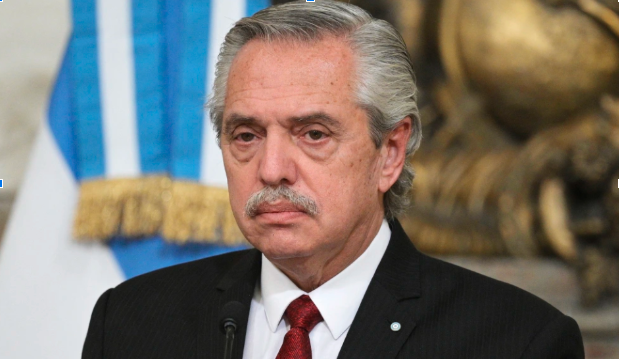“Economic turbulence grips Argentina as its President, Alberto Fernández, faces mounting calls to step down following a dramatic cryptocurrency collapse.”
Crypto Market Collapse Strikes a Heavy Blow
The collapse of Argentina’s cryptocurrency market has sent shockwaves through an already fragile economy.
Following the roof collapsing in the past few weeks, Bitcoin and Ethereum—the precursors of cryptocurrency—have lost their luster as being perceived as a safeguard against inflation.
A significant percentage of Argentinians expecting digital assets to salvage their wealth due to the unprecedented inflation rate north of 120% is now gravely disappointed.
This all stemmed from the inability to be self-reliant and was towards a version of 20-20 hindsight that existed.
The implosion of the crypto space has roots in an Argentine Central Bank blunder, first the infamous publicized overreach and sudden utilization of regulatory tactics that slew the economy, which, in turn, threw the market into chaos and disrupted order.
Overreach has resulted in panic, and somewhere along the line, nearly all – or almost all – people started blaming the President Economy.
Mounting Political Pressure on Alberto Fernández
The public outcry has grown louder as protests flood the streets of Buenos Aires and other cities. Citizens have held accountable their mandates, alleging that the state of the economy has worsened their risk exposure to loss.
Some opposition leaders have posited that there is a basis for an impeachment process against Fernandez because he has failed to manage the economy decisively.
Argumentative sessions of Congress became instead charged as the President became a target for accusations regarding his policies designed to improve the economy. Legislators highlighted the government’s irrational response to the crypto industry through regulation, bringing to the focus the policy reversals that result in the loss of investment trust.
Fernandez’s approval rating has been low, as it previously was, and the new figure in single digits paints an even more concerning image. Worry has also begun to emerge among members of his coalition, who are more anxious than ever about the results of the upcoming elections.
On his part, the President has passed the blame on to global economic factors, the constant fluctuation of the crypto market, and other issues utterly external to his influence systems.
However, critics stress that Argentina’s reliance on crypto as a financial escape hatch in tough times made governmental oversight even more critical.

Citizens Seek Accountability Amid Financial Chaos
For millions of Argentinians, the crisis goes beyond politics; it is personal. Now, businesses that have accepted cryptocurrency as a mode of payment are dealing with a revenue gap.
Families that safeguarded their life savings in digital assets to prevent the impact of peso devaluation are left wondering how they recuperate their losses.
The protests have spotlighted the underlying unrest associated with Argentina’s almost non-existent economy.
Activist groups contend that the government’s lack of effort to ensure financial literacy has also contributed to the crisis by making an average citizen very susceptible to the risks of cryptocurrencies.
On the other hand, Fernandez’s critics claim that political volatility could worsen economic conditions. Still, the President has proclaimed that he will remain adamant about leading the country out of disruption.
Analysts concur that if Fernandez’s government does not establish public trust or a reasonable recovery strategy, then the calls for him to resign will become unbearably high.
Check out Reuters’ latest report or Bloomberg’s in-depth story on Argentina’s cryptocurrency collapse.





